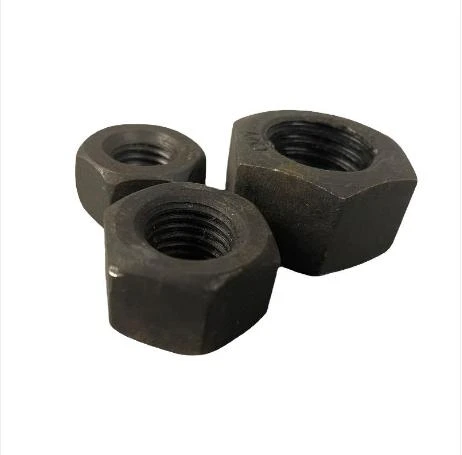

metal screws self drilling
Dec . 16, 2024 03:50 Back to list
metal screws self drilling
Understanding Metal Screws and Self-Drilling Technology
Metal screws have long been a staple in construction and manufacturing, thanks to their strength and versatility. Among various types of screws, self-drilling screws are particularly notable for their innovative design, which allows them to create their own holes in materials, making them a preferred choice for many applications. This article explores the features, benefits, and applications of metal self-drilling screws.
What are Self-Drilling Screws?
Self-drilling screws are a specific type of fastener designed with a drill-shaped tip that eliminates the need for a pre-drilled hole. This unique design features a pointed end, which acts like a drill bit, allowing the screw to penetrate hard materials such as metal and dense wood. The screw's threads engage with the substrate, fastening it securely without the need for additional tools or fasteners. This makes self-drilling screws particularly efficient and effective.
Advantages of Metal Self-Drilling Screws
1. Time Efficiency One of the primary advantages of self-drilling screws is the significant reduction in installation time. Because they eliminate the need for pre-drilling, they can be quickly and easily installed, allowing for faster project completion.
2. Cost-Effectiveness Since less labor is required to install self-drilling screws, overall labor costs can be significantly lower. Moreover, the time saved in installation can lead to reduced project timelines, which can further cut costs.
3. Strong and Durable Made primarily from high-quality metals like stainless steel or carbon steel, self-drilling screws are incredibly durable and resistant to various external factors, such as corrosion and rust. This makes them ideal for both indoor and outdoor applications, particularly in harsh environments.
4. Versatility Metal self-drilling screws can be used in a variety of materials, including wood, plastic, and metal. This versatility makes them suitable for a wide range of applications, from residential construction to automotive manufacturing.
metal screws self drilling

5. Ease of Use The self-tapping feature simplifies the fastening process. Even those with limited experience can easily use self-drilling screws, further broadening their applicability in various projects.
Applications of Metal Self-Drilling Screws
Metal self-drilling screws are employed in numerous industries and applications. Some of the most common include
- Construction They are widely used in steel framing, roofing, and siding applications. Their ability to penetrate metal without pre-drilling makes them ideal for securing metal sheets, trusses, and other structural components.
- Automotive In the automotive industry, self-drilling screws are used for assembling components, attaching parts, and securing structural elements due to their durability and reliability.
- Manufacturing Many products utilize self-drilling screws in their assembly, from appliances to furniture, where precise, strong fasteners are required.
- HVAC Installations These screws are often used in heating, ventilation, and air conditioning (HVAC) systems to secure ducts and equipment, ensuring a tight fit and reliable performance.
Conclusion
Metal self-drilling screws exemplify an efficient and innovative fastening solution that simplifies construction and assembly processes. Their time-saving features, cost-effectiveness, and robustness make them a favored choice across various industries. Whether in building a home, manufacturing a car, or installing a heating system, self-drilling screws provide the reliability and performance needed for a successful project. As technology continues to evolve, the applications and innovations surrounding these fasteners are likely to expand, making them an integral part of our construction and manufacturing landscapes.
Latest news
-
High-Strength Hot-Dip Galvanized Bolts-Hebei Longze|Corrosion Resistance&High Strength
NewsJul.30,2025
-
Hot Dip Galvanized Bolts-Hebei Longze|Corrosion Resistance&High Strength
NewsJul.30,2025
-
Hot Dip Galvanized Bolts - Hebei Longze | Corrosion Resistance, High Strength
NewsJul.30,2025
-
High-Strength Hot Dip Galvanized Bolts-Hebei Longze|Corrosion Resistance, Grade 8.8
NewsJul.30,2025
-
Hot Dip Galvanized Bolts-Hebei Longze|Corrosion Resistance,High Strength
NewsJul.29,2025
-
High-Strength Hot Dip Galvanized Bolts - Hebei Longze Metal Products Manufacturing Co., Ltd.|corrosion resistance&high strength
NewsJul.29,2025

